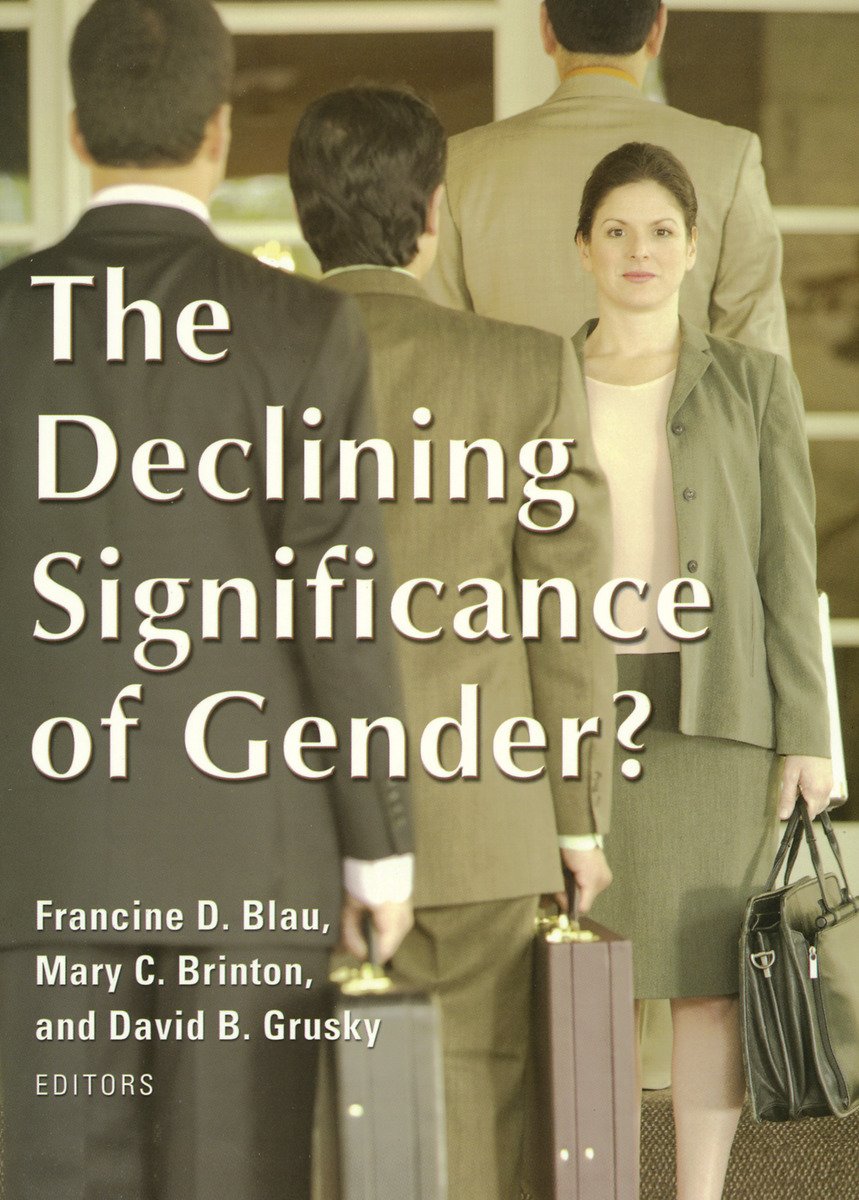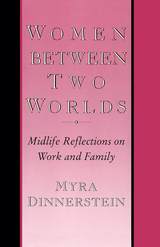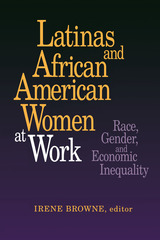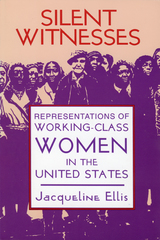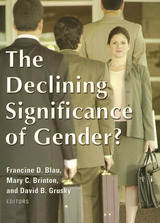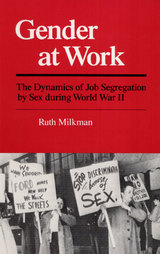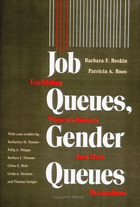The Declining Significance of Gender?
Russell Sage Foundation, 2006
Cloth: 978-0-87154-092-8 | eISBN: 978-1-61044-062-2 | Paper: 978-0-87154-370-7
Library of Congress Classification HD6060.D43 2006
Dewey Decimal Classification 331.4133
Cloth: 978-0-87154-092-8 | eISBN: 978-1-61044-062-2 | Paper: 978-0-87154-370-7
Library of Congress Classification HD6060.D43 2006
Dewey Decimal Classification 331.4133
ABOUT THIS BOOK | AUTHOR BIOGRAPHY | TOC
ABOUT THIS BOOK
The last half-century has witnessed substantial change in the opportunities and rewards available to men and women in the workplace. While the gender pay gap narrowed and female labor force participation rose dramatically in recent decades, some dimensions of gender inequality—most notably the division of labor in the family—have been more resistant to change, or have changed more slowly in recent years than in the past. These trends suggest that one of two possible futures could lie ahead: an optimistic scenario in which gender inequalities continue to erode, or a pessimistic scenario where contemporary institutional arrangements persevere and the gender revolution stalls. In The Declining Significance of Gender?, editors Francine Blau, Mary Brinton, and David Grusky bring together top gender scholars in sociology and economics to make sense of the recent changes in gender inequality, and to judge whether the optimistic or pessimistic view better depicts the prospects and bottlenecks that lie ahead. It examines the economic, organizational, political, and cultural forces that have changed the status of women and men in the labor market. The contributors examine the economic assumption that discrimination in hiring is economically inefficient and will be weeded out eventually by market competition. They explore the effect that family-family organizational policies have had in drawing women into the workplace and giving them even footing in the organizational hierarchy. Several chapters ask whether political interventions might reduce or increase gender inequality, and others discuss whether a social ethos favoring egalitarianism is working to overcome generations of discriminatory treatment against women. Although there is much rhetoric about the future of gender inequality, The Declining Significance of Gender? provides a sustained attempt to consider analytically the forces that are shaping the gender revolution. Its wide-ranging analysis of contemporary gender disparities will stimulate readers to think more deeply and in new ways about the extent to which gender remains a major fault line of inequality.
See other books on: Blau, Francine D. | Pay equity | Sex discrimination against women | Sex discrimination in employment | Women in Business
See other titles from Russell Sage Foundation
